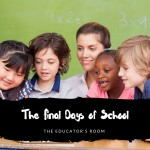What is the practical purpose of those “specials” kids have in school- you know, P.E., Art, Music, Library? There is even another special to simply help kids keep up with the gadgets that find their way into schools: a Technology class! Do these specials interfere with the demands for academic proficiency? Do they make it harder to do “college and career”? Even if that fluff had value, can it be fit into an already packed school day?
Does it make sense to even try?
Specials don’t “get in the way”, they help make the way.
They aren’t just “fluff”
Those specials aren’t just “fluff”. And yes-it does make sense to make sure they are provided in school. Still, the focus of education reformers on ELA and Math has led many schools to ignore the importance of them. Students making healthy choices, playing cooperatively, climbing the monkey bars matters little in the “failing schools” narrative. The thinking is that time used to run, climb and play is learning-time wasted. A March 2017 article published by The Council of State Government states that “… some educators and policymakers have concerns about physical education mandates for public schools and their impact on academic instruction. Increased emphasis on test scores has a direct correlation on schools increasing student time in the classroom” (knowledgecenter.csg.org)
Students making healthy choices, playing cooperatively, climbing the monkey bars matters little in the “failing schools” narrative. The thinking is that time used to run, climb and play is learning-time wasted.
Time spent creating and expressing artistically and musically can mean even less in this reform paradigm. But extracurricular pursuits can bring some much-needed relief and release time. Also, they combine with the academics to encourage greater success. These specials are bright spots in the school day and the path to a more personal sort of growth and well-being through student engagement. Concerns about student engagement and well being, though, are brushed aside by reform advocates. “Test proficiency for all” is their mission, and by golly they will fight for those test scores!
They do for learners what test scores don’t
Students’ sense of well-being is as important as data collected in those core academic areas. In school, that means making students feel that their interests and talents are valued, and making them feel engaged. Student engagement is a key factor their academic success, and a student feeling less engaged is less likely to care about school.
Specials help in this area. They are a bright spot in the school day; the cozy blanket on a big bed; the Mamas in the Papas; the Russian dressing on a crispy, warm-off-the-grill Reuben sandwich…”Proficiency”? Test scores? Sit through years and years of meetings and professional development hours hearing about how important test scores are to the growing ranks of emotionally needy kids from broken homes. That’s like hacking up the crusty, yellowed toenail hidden in the folds of that juicy Reuben you just bit into. Long story short: those specials help feed and grow greater success-emotionally, personally and academically. And educators know it.
Students’ sense of well-being is as important as data collected in those core academic areas. In school, that means making students feel that their interests and talents are valued, and making them feel engaged.
What good do specials do?
P.E.
The benefit of regular physical activity to overall health is well documented. Still, schools have felt compelled at times to sacrifice a healthy approach to education in order to meet gritty and rigorous academic expectations. Some schools have even sought ways to avoid mandates and reduce recess time in order to devote more attention to those academics. But children need recess, they need play, and they need P.E.
From the moment they are born children start interacting with the world physically. Modern times and convenience foods have made life much more sedentary and less health. The result has been disastrous health outcomes. The Centers for Disease Control and Prevention say that obesity has tripled in school-age kids over the past 30 years. Education policies and common sense should guide us towards a more fitness oriented approach. Not just to combat declining health statistics, but because increasing physical fitness will encourage mental fitness. In U.S. News and World Report, Stacey Boyd writes that “…new research reveals children who get aerobic exercise transform their brains due to a protein that is elevated during exercise acting as a sort of “miracle-gro.”
Education policies and common sense should guide us towards a more fitness oriented approach. Not just to combat declining health statistics, but because increasing physical fitness will encourage mental fitness.
Art
“You don’t find school reformers talking much about how we need to train more teachers in the arts, given the current obsession with science, math, technology and engineering (STEM)...” (Valerie Strauss, 2013).
Some students struggle with the academics in school-even students who are very intelligent. For them, being involved in the arts can have a complementary effect on achievement. It can be an avenue for expression and connection with the content. My oldest, now 19 and in her first year at college, “hit a wall” when she got to high school. My wife and I knew how smart she was, but something just wasn’t clicking. I wrote about it, and it breaks my heart every time I go back to read it. This was my brilliant baby made to feel less than worthy:
“…my wife called me at school and told me that our oldest daughter had gotten off the school bus crying. Walking up our 100 feet of the driveway between the road and our door, she had her report card in one hand and was clearly trying to gather herself before getting to the house. She didn’t want her mother to see she was upset, was probably fearing our disappointment with her grades and with her…” (Being a Teacher, But First, Just Being Dad, Jan. 2017)
We pushed to get her into the programming that better suited her. Part of her many successes I describe in that article were a direct result of her involvement in the arts (performing, visual and creative writing). I think her grades improved because she had found her way, become comfortable in her skin, and more confident in herself. Students encouraged to express themselves artistically realize multiple benefits.
Music
“The earlier a child starts instrumental training, the stronger the connection between the right and left hemispheres of the brain. These changes last into adulthood and are proven to affect the ability to listen and communicate as an adult.” (McGill, Feb. 2013)
My father always had a harmonica, and he began getting them for me when I was very young. We now have a couple guitars (mine), and my oldest has her two ukuleles (a soprano and a baritone) at college with her. We have an electronic keyboard, and there are a few kazoos around. I’m not sure my father knew what he was doing when he got those harmonicas-but I know why I do these things for my own, and why I have incorporated music into my teaching when I can.
When my girls can either rap out some Eminem Without Me, take the high harmony in Toto’s Africa, or duet on some Les Misérables :I know something is working. My girls aren’t just car ride karaoke champs, either. Number one was one of the lead roles in her senior year drama production last year (Anything Goes). My 11th grader is the female lead this year (Adams Family). But for those who still need test scores to hug at night: research shows that involvement in music, like the other “specials”, promotes academic success. Musical students score“…on average, sixty-three points higher on the verbal section and forty-four points higher on the math sections of the SATs than non-music students.” (thehumanist.com)
I’m not sure my father knew what he was doing when he got those harmonicas-but I know why I do these things for my own, and why I have incorporated music into my teaching when I can.
Library
Books do not get the respect and recognition they should. Yes, it can be a struggle keeping video-game addicted students interested in reading and willing to read can feel like a losing battle. But not only do so many gadgets and games pull them away from reading, we all risk losing sight of the true value of libraries and librarians. In 2014, an American Library Association report said: “Squeezed school budgets and increased emphasis on high test scores have led professionals to recognize that school libraries nationwide are at a critical point.”
More than ever we need the expertise of librarians. Their role has expanded beyond simply directing and monitoring the checking in and checking out of books. Now we need these vital guides in the veritable jungle of information that is available to learners. Instead of being swept to the side or diminished due to the drive for test-scores, libraries and librarians need to be elevated in function and importance. The ALA describes it like this:
“As the walls of the library have expanded, so has the job of the librarian. Teachers and students expect assistance nearly 24/7 in whatever tasks they undertake.” The issue focuses on ways to create, adapt, and use student-centered physical and virtual library spaces and includes discussion of learning commons, “maker spaces,” (ALA, 2014)
But not only do so many gadgets and games pull them away from reading, we all risk losing sight of the true value of libraries and librarians.
Technology
Over the course of my teaching career, the role of technology has increased. At first, it was merely a tool. It was an email taking the place of notes in your mailbox or left on your desk. That drive for ease and efficiency gradually bled into the systems we once had total control over. So instead of report cards that were 5-copy carbons, there are programs that collect grades and generate report cards. Instead of paper and pencil demonstrations of ability, students now are engaged in computer-based games and assessments. While there might be a convenience aspect, there are also risks to becoming attached to and dependent on technology . When we allow it to creep further into the very human process of education, we risk becoming a tool of the technology, instead of technology being our tool.
But an article in the Washington Post states: “Being adept at using the Internet is in an important life skill that we all have to master to be successful, productive members of society. We should be embracing it. We should be teaching our kids how to do it.” (Owens, 2012) .
The only responsible approach is to prepare our students to be smart users of technology. Schools need to provide that technology special, just like the other ones. Mostly because it will make them better researchers and communicators. Also because it will prepare them to not fall victim to the trash that is out there and the lazy thinking that quick answers and bad information can inspire.
Getting specials back on the school reform radar
To do “education reform” right, we need to abandon the narrow and sterile test-score focus, and start focusing on the humans we are testing.
Parents who know better than to make test scores the end-all are the ones who drove the “opt out” movement. It will be them and parents like them pushing a smarter “whole student” approach. That means specials become a priority. Schools need to be funded, supported and equipped adequately to provide these opportunities. It might be difficult. Reformers are eager to label schools “failing” and close them down whenever possible-based on test scores. So yes, it might be difficult. It will take parents, and educators willing to work with those parents, to organize their communities. The primary goal for them will be in advocating for their students and their schools. Then it will be putting political pressure on policymakers. That pressure needs to be focused on holding policymakers accountable to mandate a more whole-child focus in public education.
It might be difficult. Reformers are eager to label schools “failing” and close them down whenever possible-based on test scores.
This is where the challenge could really be:
School years, weeks and/or daily schedules might need to morph in some way. Now, I am a hard-core union advocate. And I like my summers off almost as much as my wife likes me having them off. But we have to get more contact time with some of our neediest kids. Possibly, summer vacation shortens. Maybe a four-day academic fifth day specials and services day (with teacher meetings, grading, planning etc. happening on the fifth day). Maybe an altered year to spread regular breaks throughout the year while trying to preserve the important ones (Christmas, Thanksgiving…).
Cooperation between school districts, especially smaller rural ones, could also help. Flexible or rotation-schedules to make it easier to share facilities and deliver opportunities to multiple groups. As a parent, I know the value of a whole-child approach when it comes to outcomes with my daughters. As a teacher for nearly two decades I have seen the transformative power of opportunities in extracurricular areas. I think that practically and morally there’s little choice but to make it happen.We have to do what is right by our children and our students, because they are special, not standard.
“Shortsightedness from parents who encourage our college-age children to focus on an “employable” major, or cutting school funding, has long-term implications. If we are truly care about the future of our kids and our country, we will think twice before cutting programs that will dwarf their (and our) potential.” (usnews.com)







If a child has an IEP can they be pulled out of specials for IEP services in Massachusetts?
I hope not
I hope not.
do specials matter towards getting into school and/or contributing to you overall grade in which reflects upon the school who sees it?
Yes